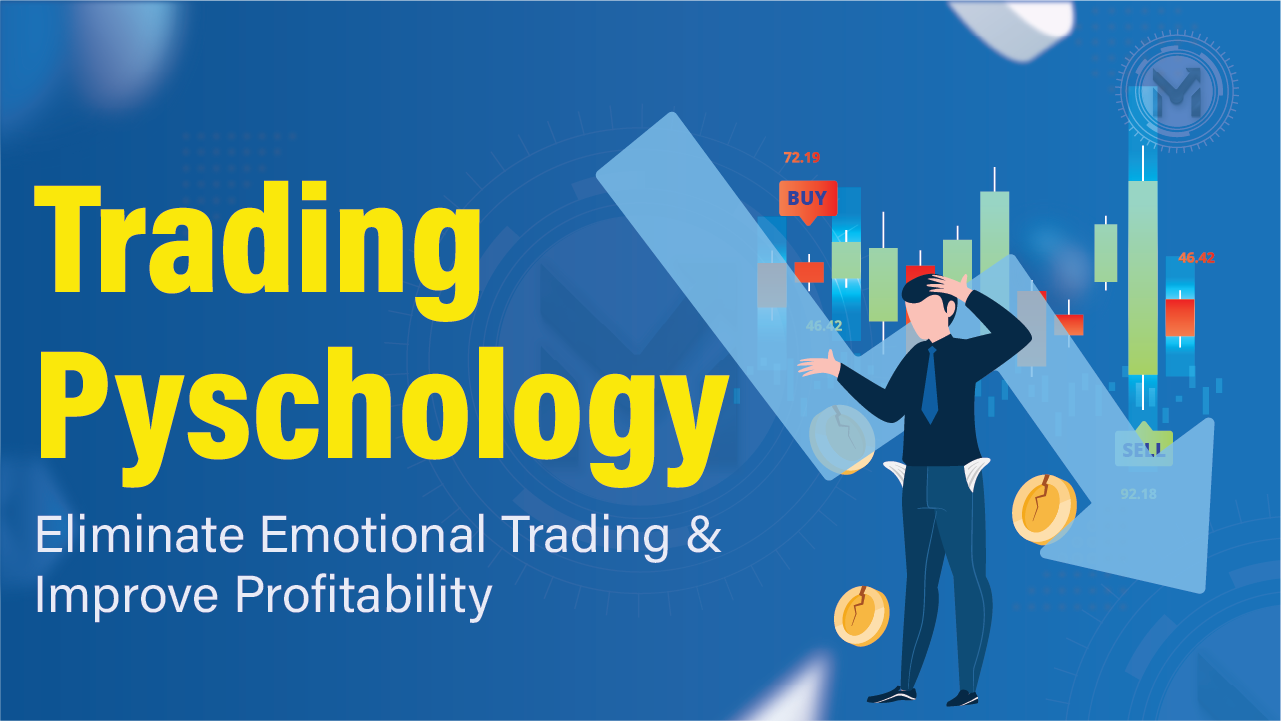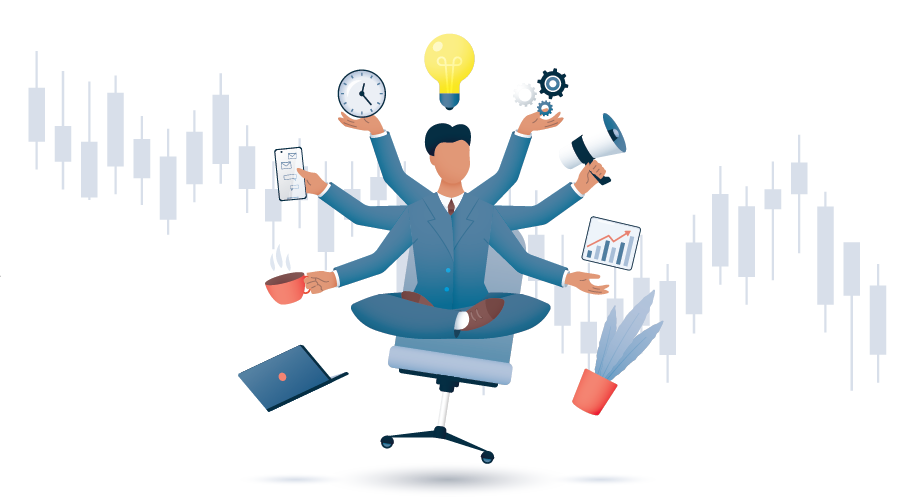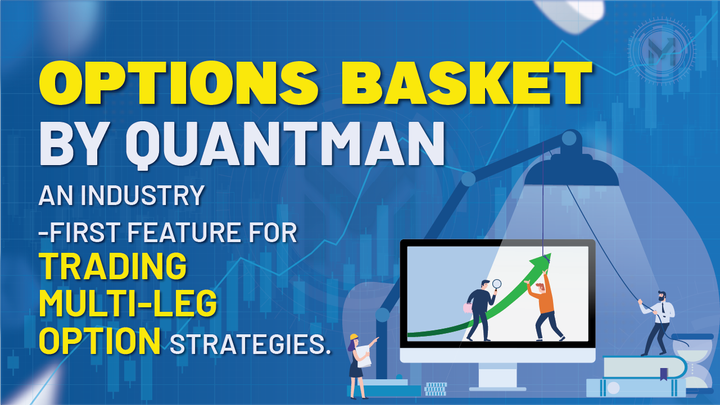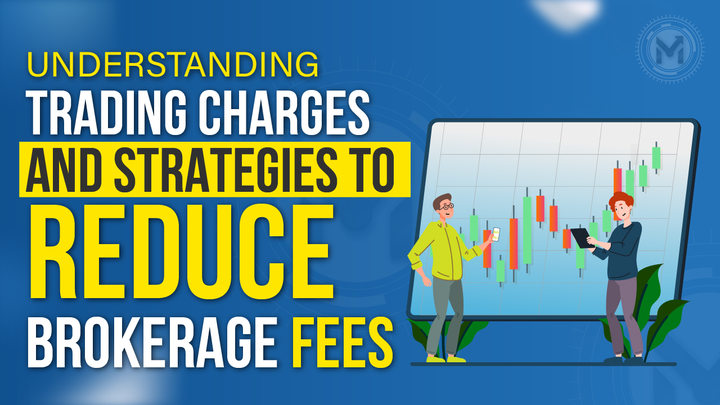Trading Psychology - Eliminate Emotional Trading & Improve Profitability
Emotions greatly affect trading, often causing poor decisions and impulsive actions like overtrading. This blog offers tips for managing emotions, such as creating a trading plan, practicing mindfulness, journaling, and using automation tools like QuantMan.

No matter how experienced you are in trading, you’ve probably faced moments when your feelings impacted your choices. Managing emotions while trading can be tough, as traders often struggle with feelings like greed, fear, and overconfidence. However, learning to manage these emotions can lead to better trading outcomes. By minimizing emotional influence, you can make clearer decisions, avoid overtrading, and steer clear of unnecessary losses. In this blog, we will offer practical tips to help you effectively manage your emotions while trading.
In this blog, we will provide practical tips to help you effectively manage your emotions and gain a deeper understanding of trading psychology.
What is Emotional Trading?
Emotional trading occurs when traders make decisions based on feelings rather than logic or strategy. This could include:
- Buying impulsively out of Fear of Missing Out.
- Holding losing trades hoping for a turnaround
- Overtrading due to boredom or revenge trading after a loss
These actions are rarely grounded in technical or fundamental analysis and often lead to poor results. Over time, emotional trading not only drains your account but also your confidence.
Common Emotions That Undermine Your Trading Success
Following are the commonly seen emotions dominating the success of a trade.

- Fear: Fear causes hesitation. You miss good trades or exit too early. Fear also makes traders avoid opportunities altogether, leading to underperformance.
- Greed: Greed makes you overstay in winning trades, hoping for more, only to see profits vanish. It also tempts traders to increase position sizes or abandon risk management.
- Frustration (Revenge Trading): After a loss, some traders want to “get it back” quickly. They start trading without setups, increasing risk, and spiralling into even bigger losses.
In addition to these factors, emotions such as frustration, conviction, and nervousness can significantly impact trading performance.
How to Control Emotions in Trading
Upon looking at the common emotions, you may wish to control them. This leads to the question: How can I control something as powerful and unpredictable as emotion? The solution lies in implementing structure and automation.
Use a Trading Plan for Every Trade
Create a written plan before every trade:
- Entry point
- Stop-loss
- Target
- Position size
- Risk/reward ratio
This removes the need for mid-trade decision-making and reduces impulsiveness.
Practice Mindfulness & Breaks
It may be worth considering that sometimes the best trade is no trade at all. If you find yourself feeling anxious, angry, or overly excited, it might be a good idea to step away. Trading while in a heightened emotional state can be risky, much like driving under the influence; you may get lucky occasionally, but a negative outcome is likely. Incorporating daily mindfulness practices, regular exercise, or even taking short breaks between trading sessions could significantly help clear your mind and safeguard your capital.
Journal Your Trades & Emotions
Keeping a trade journal helps you identify emotional patterns. Write down:
- Why do you enter/exit a trade
- How you felt before, during, and after the trade
- Whether you followed your plan
Over time, you’ll spot recurring emotional triggers and learn how to control them.
Backtest Your Strategy
When you know your strategy works over hundreds of trades, it's easier to stick to it during a drawdown. Backtesting provides psychological comfort and data-based confidence.
Platforms like QuantMan are excellent for this. QuantMan offers advanced backtesting tools that allow you to test strategies across historical data, helping you verify setups and build discipline over time.
With QuantMan, you can:
- Test option and equity strategies
- Validate entry/exit points
- Analyze performance under different market conditions
This level of clarity helps traders stay focused on logic, not emotion.
How to Completely Avoid Emotions Using an Algorithmic Platform - QuantMan
If you want to eliminate emotional trading entirely, automation is key. This is where algo trading platforms like QuantMan truly shine. Rather than manually responding to market fluctuations, you can develop a logic-based strategy and allow the system to implement it as intended.
QuantMan is designed for traders seeking to automate their processes without the need for coding. It allows you to:
- Create multi-leg strategies (for options traders especially)
- Automate entries and exits
- Set conditions based on technical indicators or custom logic
- Eliminate hesitation and overthinking
Once your strategy is built and tested, QuantMan executes it in real time without emotional interference. It remains calm during losses and does not become overly eager during wins; it simply adheres to the logic.
FAQ
How to stop emotional trading?
To stop emotional trading, create a plan before initiating a trade, recognize your emotions, practice controlling emotions, or switch to an Algo trading platform.
How to trade without fear?
To trade without fear, conduct thorough research on stock trading. Additionally, develop a solid trading plan and practice persistence and discipline while managing risk effectively.



